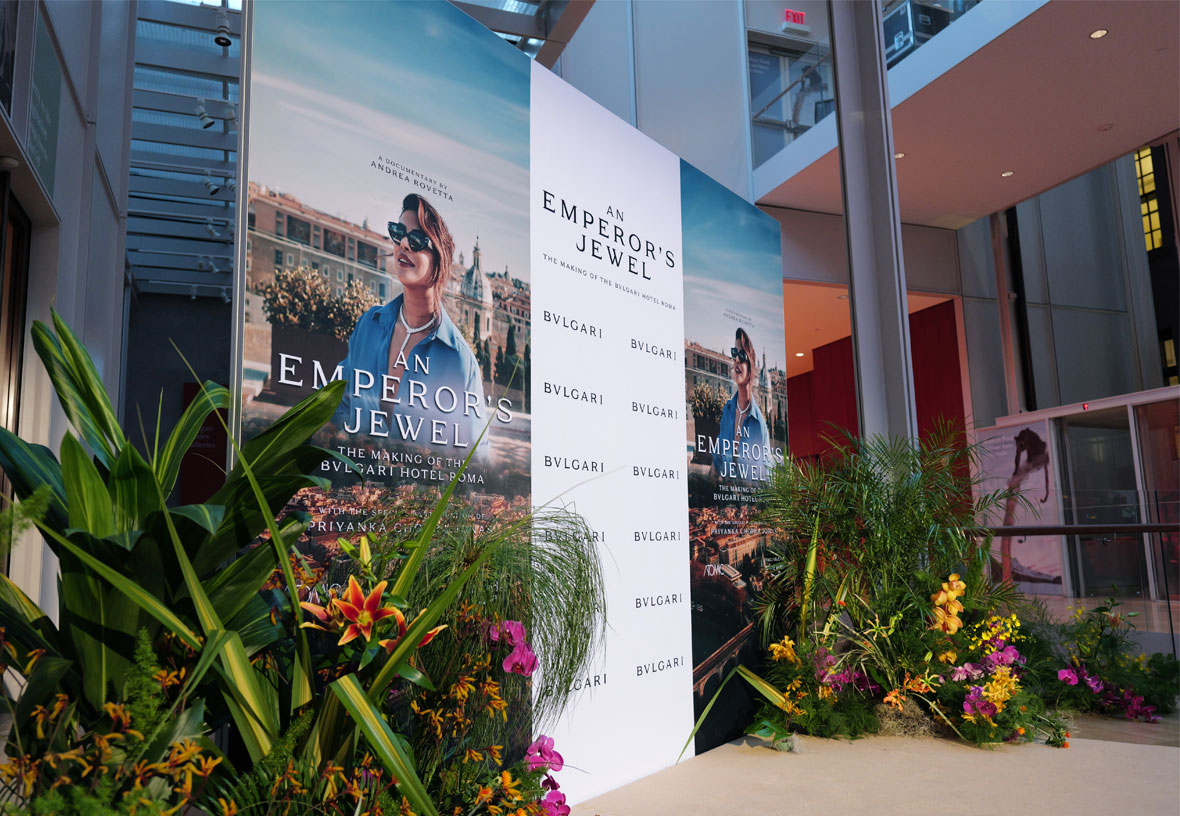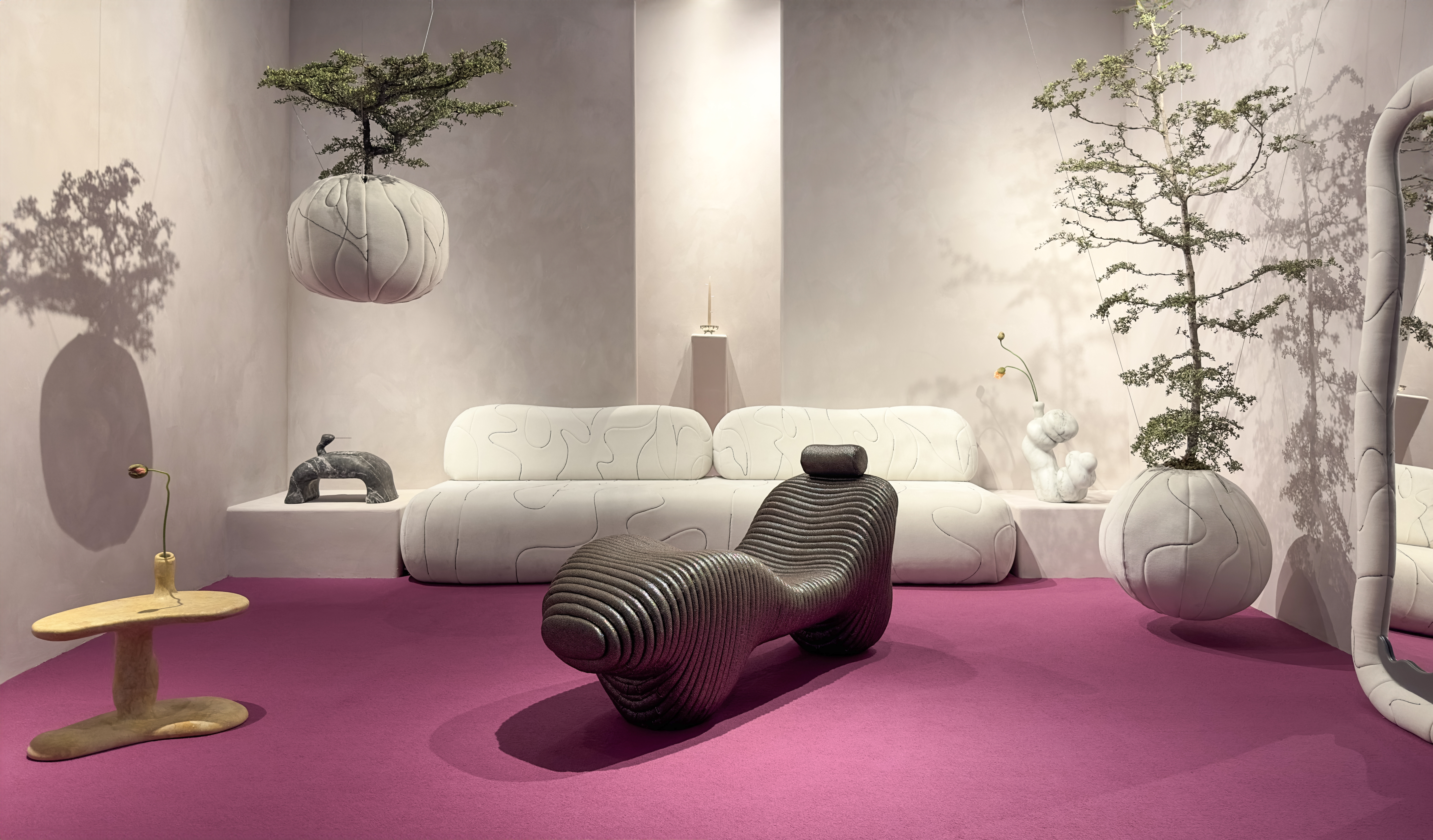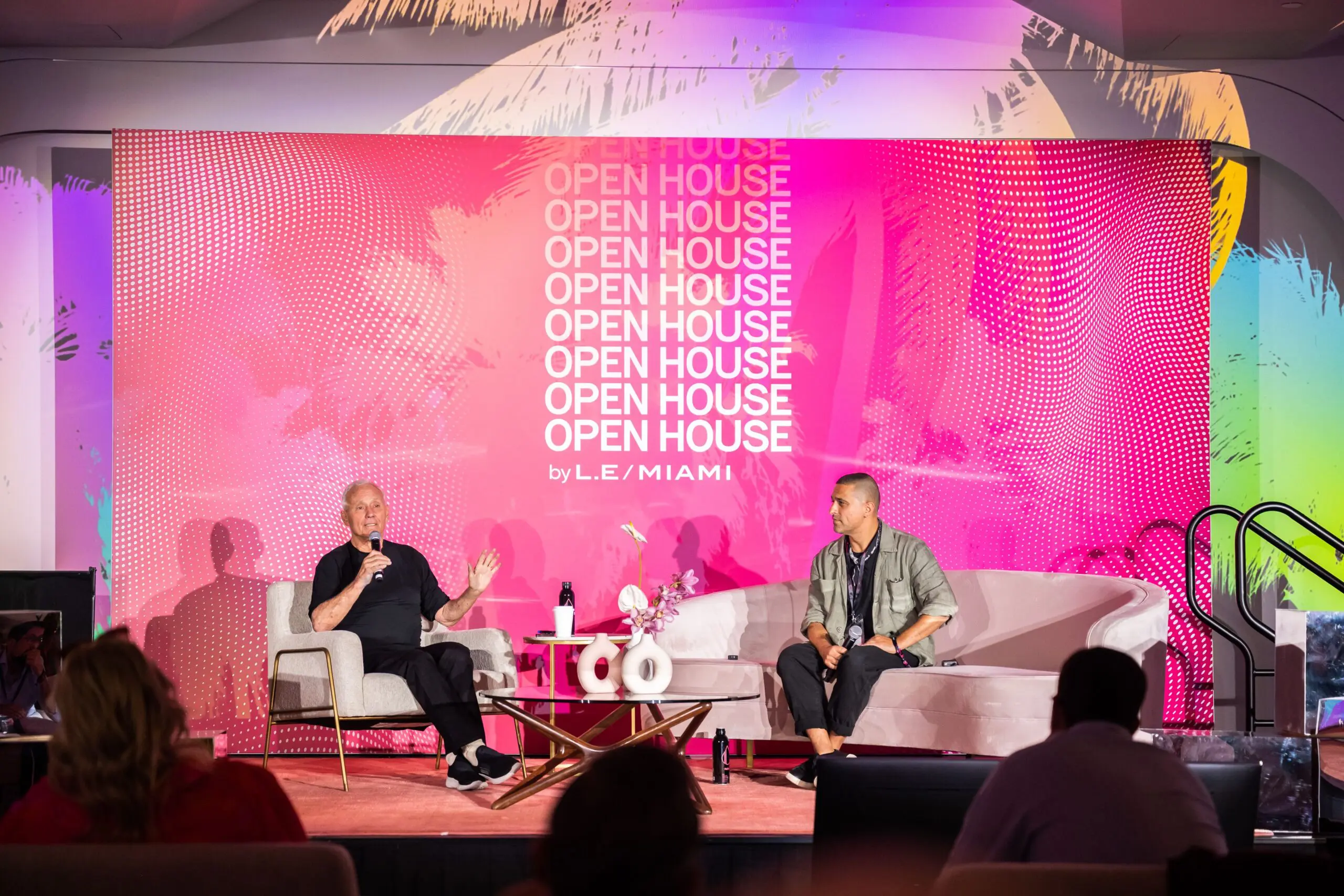We care about your privacy. We attempt to limit our use of cookies to those that help improve our site. By continuing to use this site, you agree to the use of cookies. To learn more about cookies see our Privacy Policy.
Khalid Meniri
Selfbook Founder Is On a Mission to Take Hospitality Into the Future
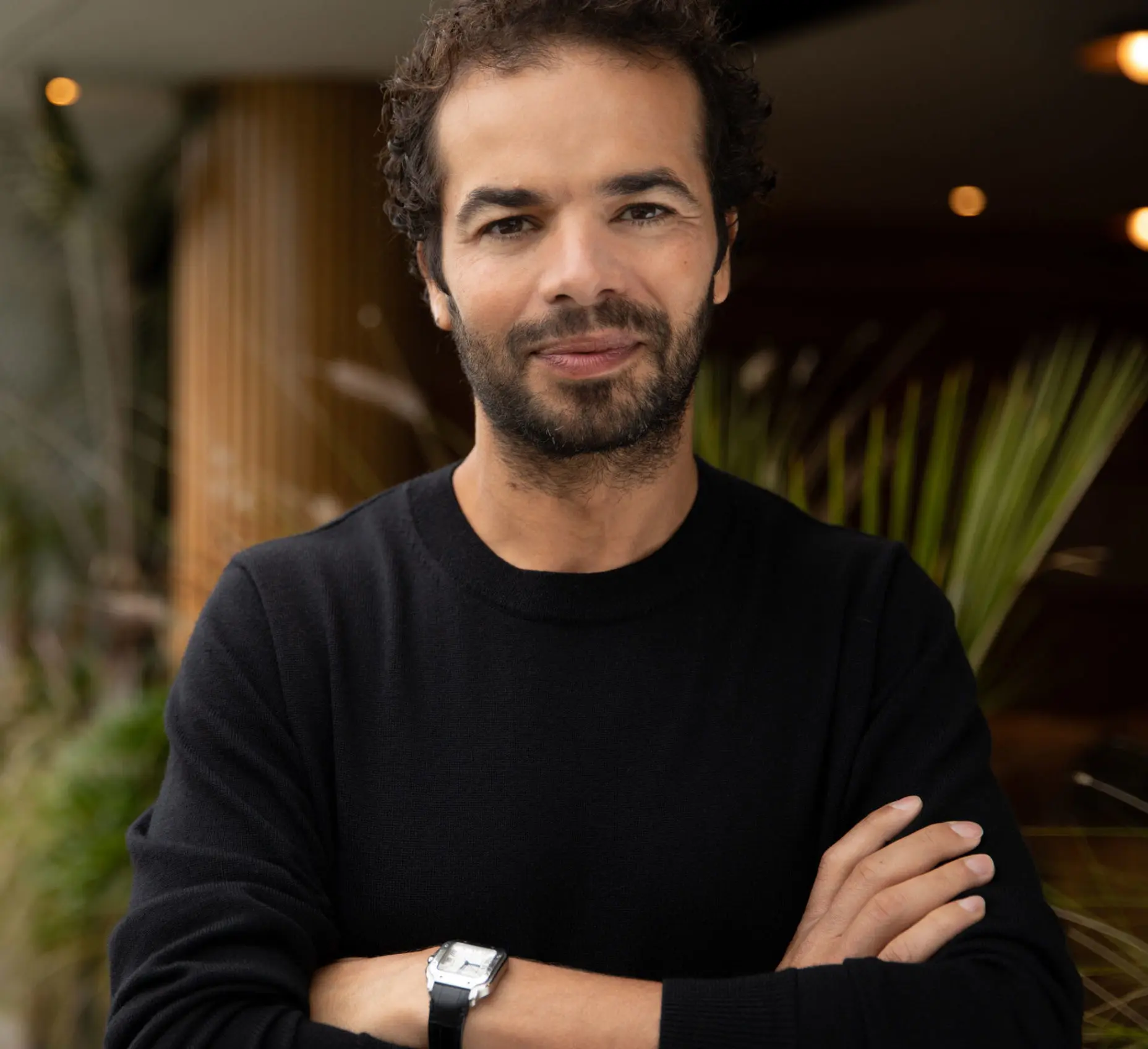
– follow Khalid –
Khalid Meniri’s journey towards transforming the travel industry was not a straight path. His career as a data architect for Siemens and head of user experience for Moda Operandi was interlaced with his expertise on creating apps — he’s built them for household globally recognized names such as Net-a-Porter, Unilever, and Hearst.
In 2018, Khalid launched an award-winning platform called SIX Travel. Khalid’s team built proprietary technology that allowed users to book a curated selection of hotels directly inside the app. When the pandemic struck, Khalid decided to democratize SIX’s booking functionality to make it directly available to hotels, and the company evolved into the now highly appraised Selfbook: A groundbreaking technology that helps hotels to drive direct bookings and allows users to book with future-forward one-click digital wallets. Khalid chatted to A Hotel Life founder Ben Pundole and Editor-in-Chief Tansy Kaschak about Selfbook’s journey, the rising role of technology in travel and hospitality, what makes for a memorable hotel experience, and more.
Share this Story
Tansy Kaschak: Khalid, you are truly living a hotel life spending your days around the world in different exciting hotels while creating Selfbook. Tell us more about it?
Khalid Meniri: Selfbook helps hotels drive direct revenue and cultivate a direct relationship with customers. As a tech company sitting at the intersection of fintech and hospitality, we’re providing hotels with tools that are already mainstream in other industries — a safe, one-click checkout experience. If you go on most hotel websites today, whether they’re large chains or small lifestyle hotels, you can’t use Apple Pay, Google Pay, or a Buy Now, Pay Later option. Selfbook is bringing that technology to our hotels. Our goal is to help hotels, especially independent properties, compete and level the playing fields with OTAs (online travel agents) and large aggregators.
Ben Pundole: Bravo. Is travel and hospitality something that you’ve always had a love for? What’s the origin of your passion?
Khalid: I’ve always had a love for exploring new places and, for me, hotels are a portal to curiosity. You walk into a hotel and are transported to a different time and space. Go to another hotel just next door and you’re transported again. Growing up as an only child, that sense of escape and desire for a sense of belonging has always been with me.
Tansy: You originally developed Six Travel as a booking platform, but encountered challenges competing with large OTAs. You knew, however, that you had this great tool that should be made available to hotels. What prompted you to create this groundbreaking booking technology and what are you aiming to change in the hospitality industry?
Khalid: Six Travel was, essentially, a curated list of hotels that could be booked with a single click. The idea of curated hotels in an app was inspired from my own travels as I wanted to collect all those experiences.
Having successfully built apps in other industries, I wasn’t daunted by the idea of building a travel app — but be careful what you wish for. While creating the app was easy, connecting technology to book these hotels in real time with a single checkout was really difficult. We looked for a partner to provide the checkout technology but couldn’t find one so we built it from the ground up.
By the time we raised a little bit of funding and launched the app, the pandemic had begun. It was the worst time to launch a travel app. I had a lot of time to think about how we could deconstruct the app and technology and then democratize it, giving it directly to hotels. In April 2021, we launched Selfbook. It was challenging due to the pandemic and hard to scale as a business, but those challenges forced us to think differently.
Tansy: How can hotels use Selfbook as a tool to bounce back in a post-pandemic reality?
Khalid: Hotels spend a lot of money and effort thinking about their brand, creating websites and social channels, and trying to capture the audience directly. From an economic perspective, direct bookings provide the highest margin for hotels because OTAs take 20-25% commission.
Unfortunately, however, that booking experience is often very disconnected from the brand experience. You have an amazing hotel with a beautifully designed website, but guests are redirected to a form-heavy template when it’s time to book. It really breaks the brand experience.
Imagine you go to a luxury boutique and are told that you have to go across the street to pay before coming back for your purchase. That’s what happens on hotels’ websites.
Our goal is to keep guests within a consistent brand experience while maintaining safety and security in terms of data. With Selfbook, hotels are automatically compliant with all regulations while maintaining a unique, consistent customer experience.
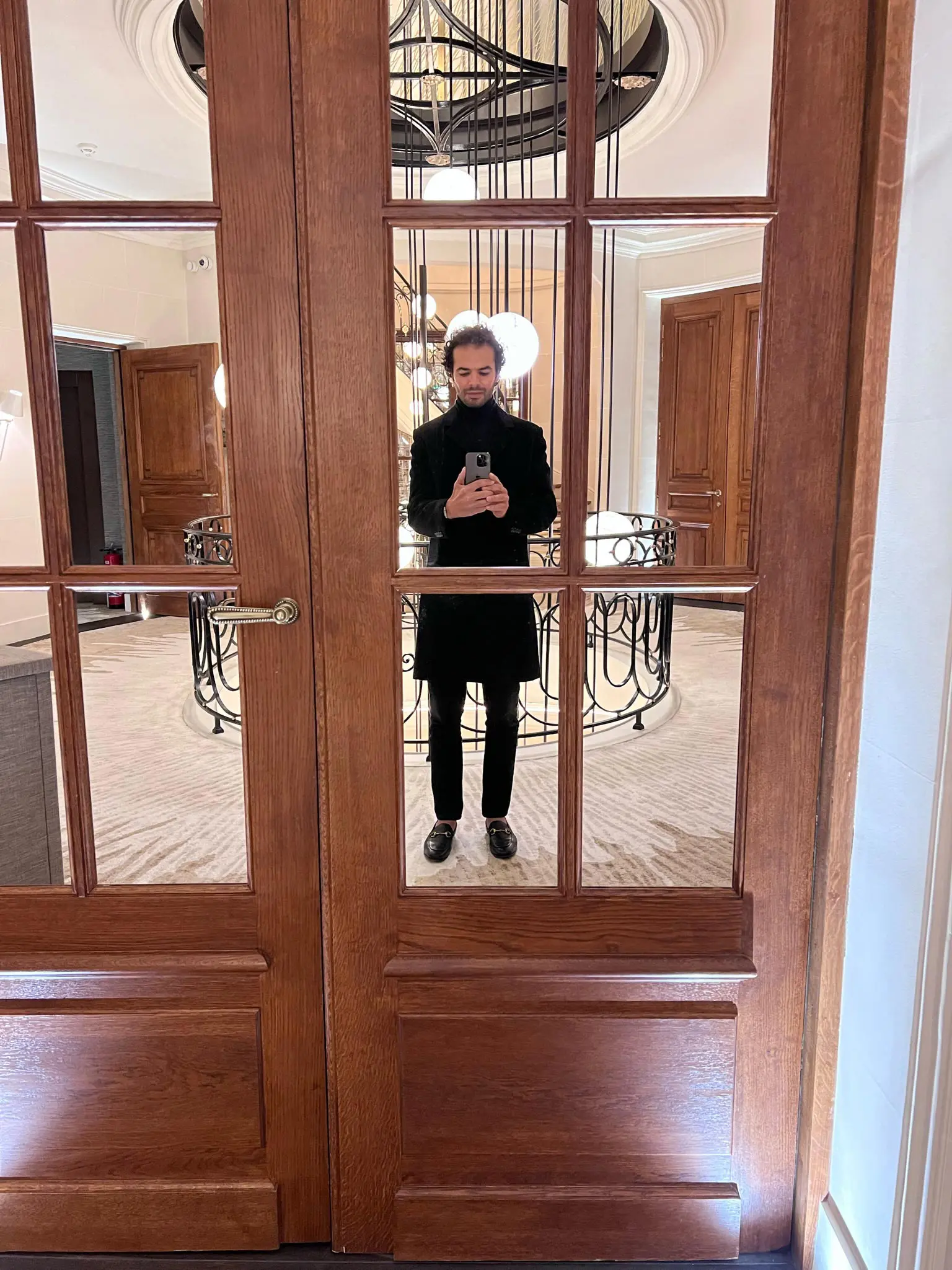
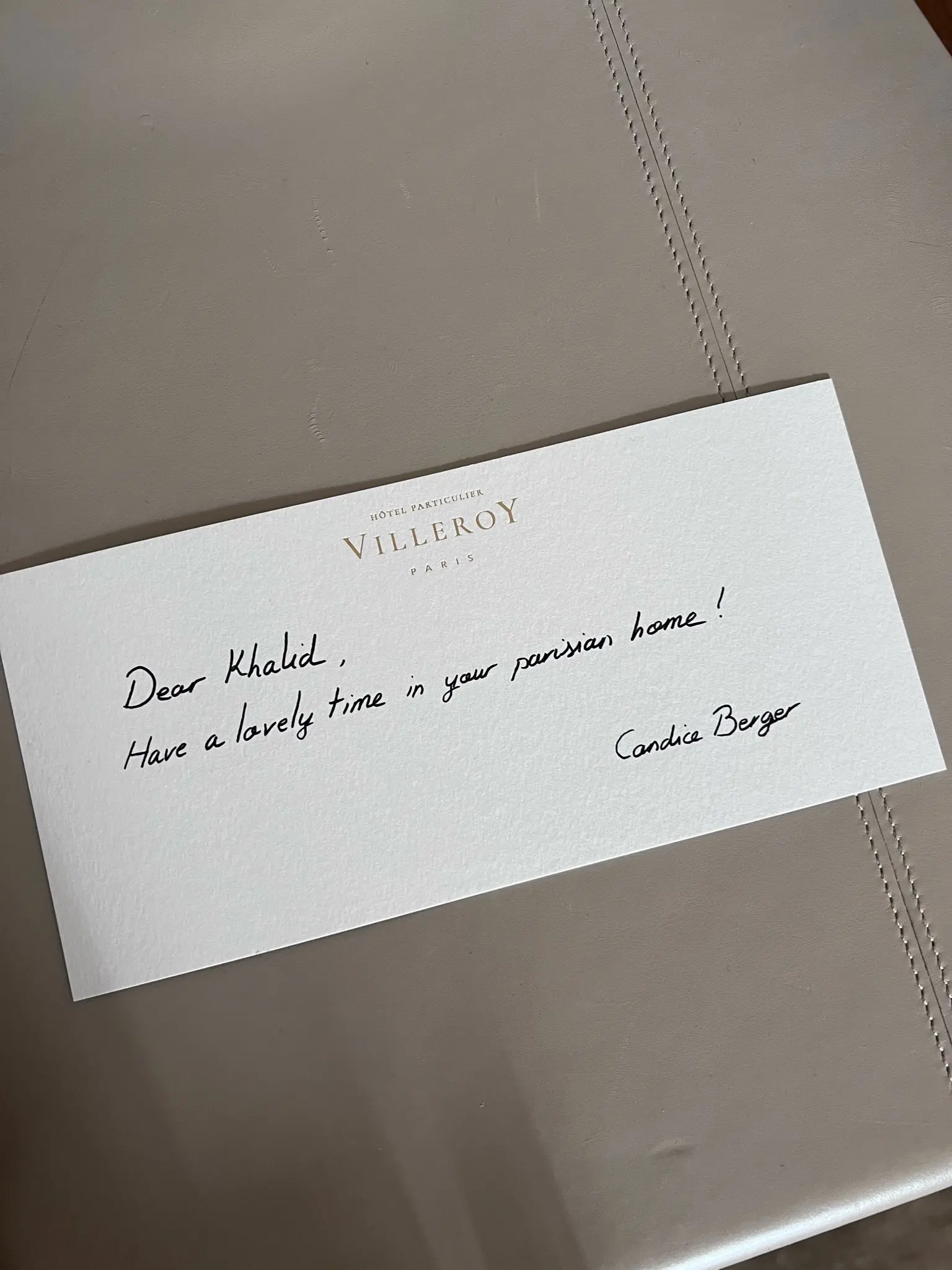
Ben: It’s obviously brilliant technology that will revolutionize the way people book hotels. Why has it not been done before? It’s been done in fashion, music, and art. Why not travel?
Khalid: Fashion, music, and art are great examples because they are pretty straightforward transactions. You see an art piece and know how much it will cost. The only variable might be the size of the print and shipping costs. With music, you know exactly how much it will cost to download a song. With fashion, you select the size, color, and shipping address, but the cost of the item stays the same.
When it comes to booking a hotel, you’re buying space over time for a certain number of people. Any of these variables can change significantly and that’s just one layer of complexity. The second layer could be the rate term — there might be an advance rate or pay-at-hotel rate or deposit.
The current system used by hotels doesn’t appreciate the nuances caused by changing rates and variables. The value of Selfbook is that it connects all the dots in the background so the customer doesn’t have to jump from one place to another when booking the room versus spa versus a restaurant. Selfbook puts all that in one place and unifies the checkout experience so customers are not jumping left, right, and center. Unifying the data and streamlining the checkout experience is really important, but it is complex which is why it hasn’t been done before.
Ben: Who do you think are the most progressive or future-forward hotels in the world today?
Khalid: I would say the most forward-thinking hotels today are the hotels using Selfbook. It sounds biased, but those are the only hotels that are using digital wallets. We really are proud to have been the first and the only ones in the market to push for that.
But, for me, when I think of a future-forward hotel, I really don’t think of tech. Tech elevates the experience, but it doesn’t make it high touch. I want to be able to go to a hotel and have room service delivered without signing for it and show up to breakfast without having to give my room number. It’s the basics of an elevated luxury customer experience. I don’t think future-forward means robots at the front desks — it’s really about the elimination of friction rather than adding more tech.
Ben: Tech can be used as a way of enhancing the human touch, the human experience.
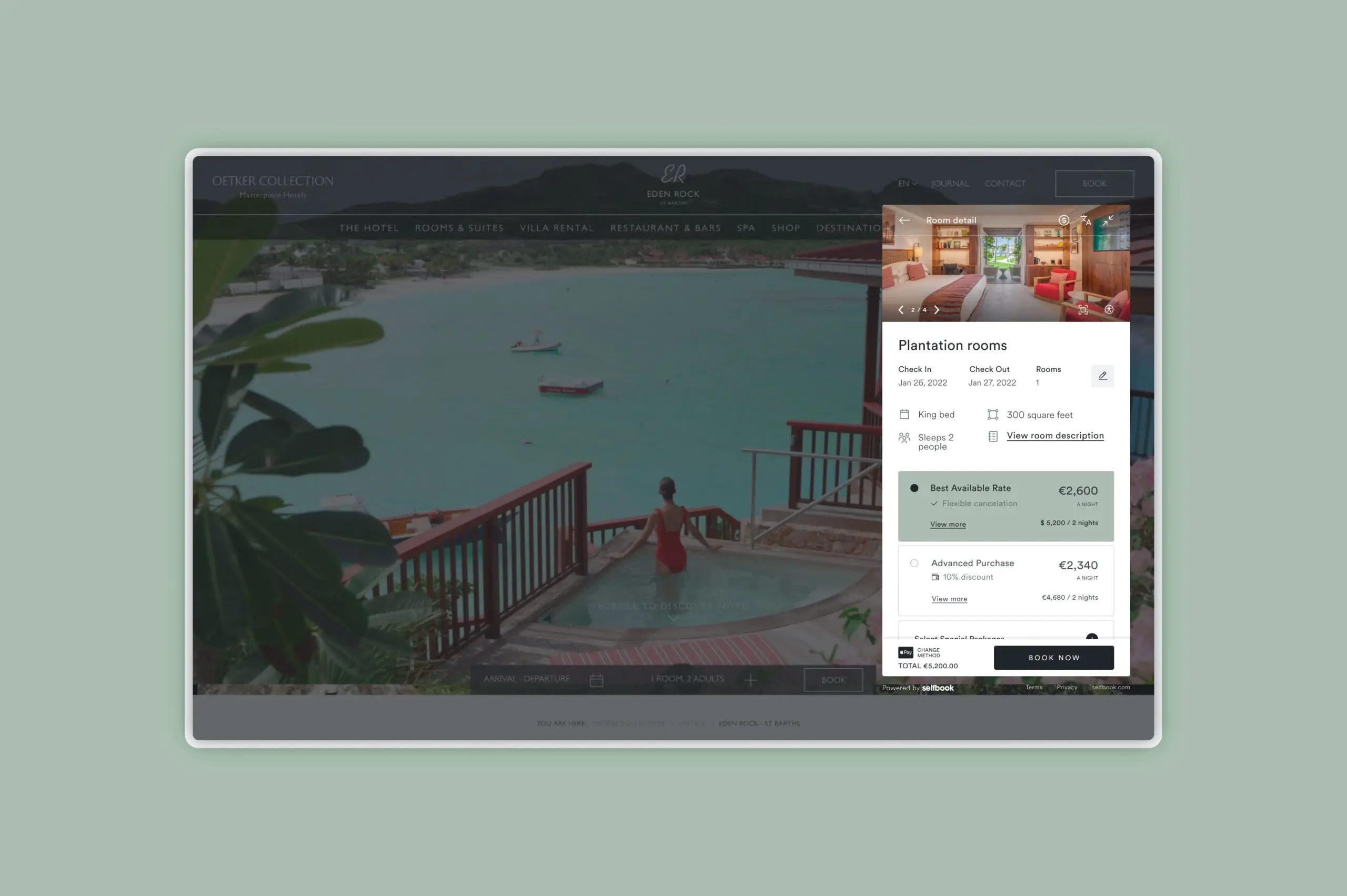
Tansy: What are the ways in which you see technology pushing the hospitality industry forward into the future?
Khalid: Data. If you can use data in a clever way to know your customer. It’s the paradox that people want to do things for themselves, but they want it done for them. Hotels can use data in a clever way to learn about and know their customer. Ben has a certain set of preferences and Tansy has different preferences — we can use data and business intelligence to unlock that knowledge and deliver.
For instance, Maison Villeroy, one of the hotels I love to stay at in Paris, knows that I like this lemon cake. Every time we check in, there’s this lemon cake in my room. There are some hotels that know I don’t drink alcohol so there’s ginger beer. Little things make a huge difference, but how can hotels remember all these things? How can they remember people’s names and preferences and little intricacies? Technology makes data alongside context possible with a level of accuracy.
Ben: I used to stay at the Upper House in Hong Kong and there would be dark chocolate and a green juice waiting for me whenever I arrived. Within 5 minutes of checking in, they’d send me a green tea. They were three of my favorite things. I would never stay anywhere else and would tell the world about Upper House’s guest service. It’s incredible what that human touch can do for a brand. The beauty of it is that lack of visible technology or recognition of it is where tech works best. What do you look for in a perfect stay?
Khalid: It comes back to this innate curiosity. A hotel is a gateway to culture and each hotel is different. Ett Hem in Stockholm is one of the best hotels in the world. It literally means a home and it doesn’t feel transactional. The life of the hotel is around the kitchen. Guests will hang out and there will be strawberry pie after they went strawberry picking and there’s no menu at dinner. The chef will say, “We picked chanterelle mushrooms tonight so we’re making a stew with that.”
This authentic Swedish experience in a home is what I consider a gateway to culture. What I love about hotels is when you feel the sense of belonging in that time and that space.
Tansy: Favorite minibar item or hotel amenity?
Khalid: It really depends on the hotel. I use the Sunset Tower ashtray as a catch all.
Ben: I’m sure that’s why they make them like that — you did exactly what you were supposed to do.
Khalid: Exactly.
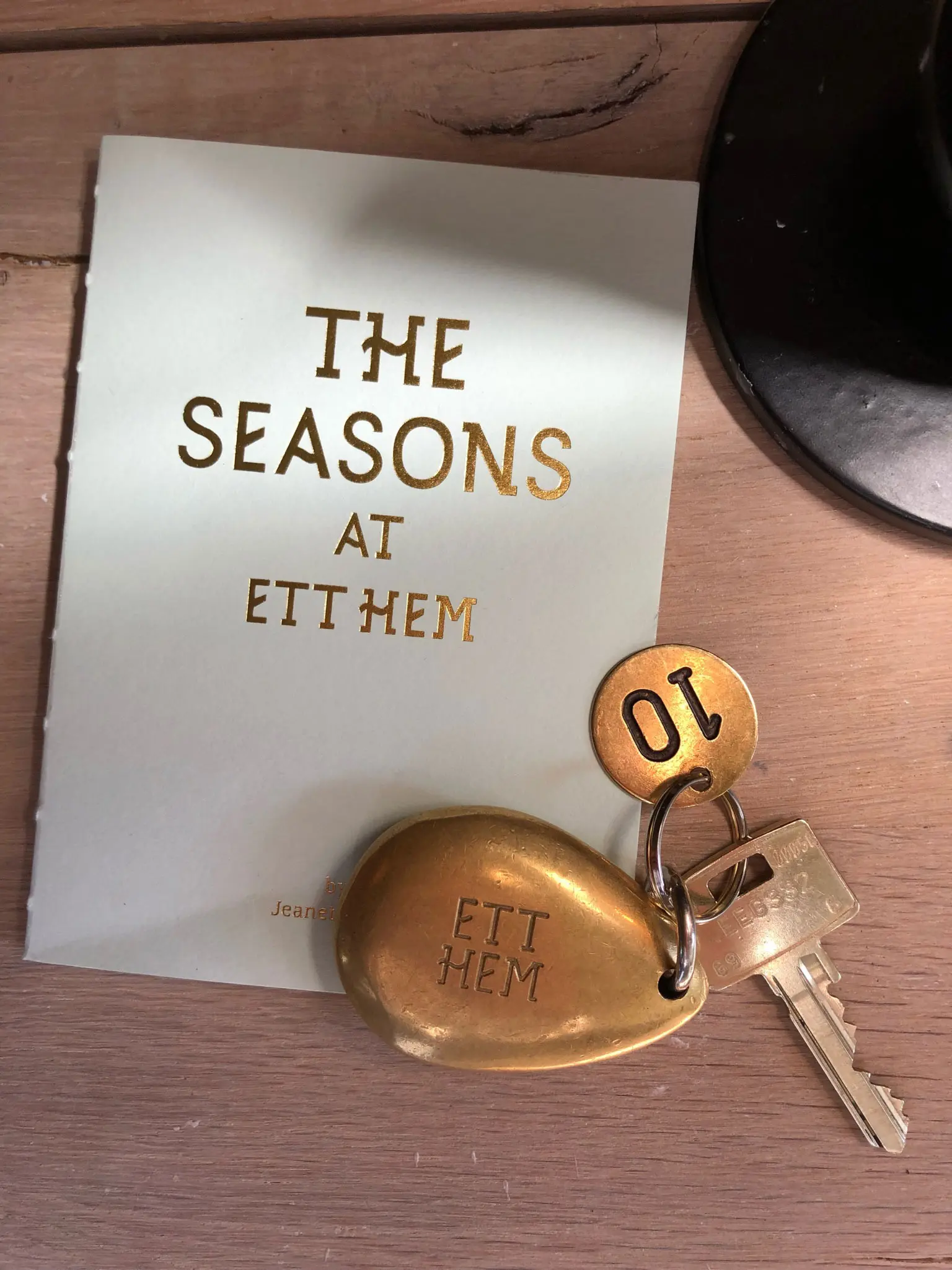
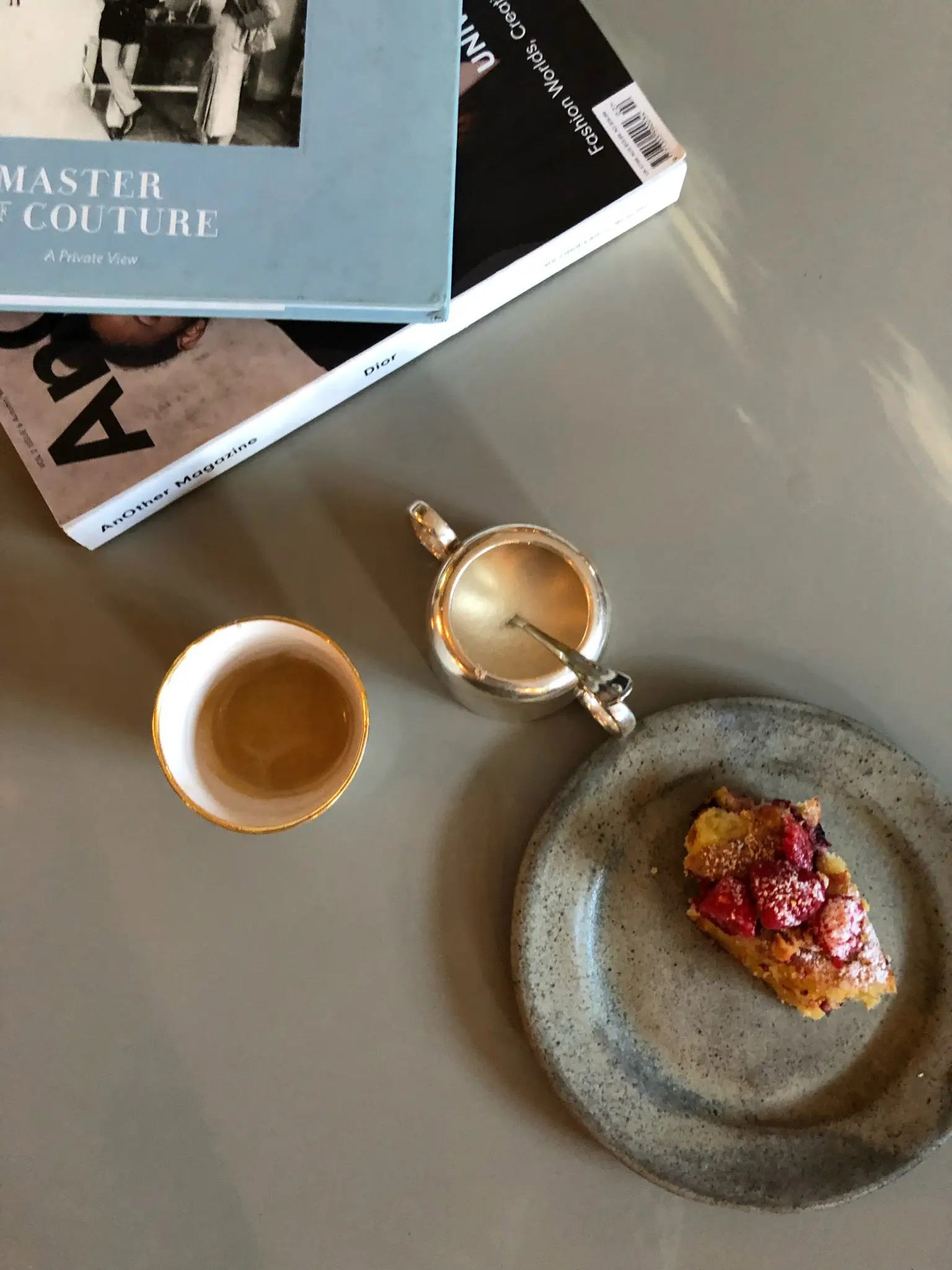
Ben: Do you have a favorite hotel anecdote? You’ve been living in hotels probably for longer than anyone I know so you must have seen some…
Khalid: I live exclusively in hotels. I’m lucky to stay in some incredible hotels, but the best anecdote I can think of is about a non-fancy hotel in Lake Como in February in the winter. Lake Como in the winter is dead, but I was working on a project during my fashion days. I went back to the hotel room around 8 p.m. and Lake Como was shut down. There was no restaurant open for dinner — not a single pizzeria or cafe. I was the only person staying at that one hotel that was open in town. It’s a two- or three-star hotel.
I was starving, obviously, so the owner came back to the hotel and cooked ravioli for me. He opened the kitchen of the hotel even though the restaurant was closed for the season. He cooked me dinner, but the best part was that he properly set the table with cloth and candles for two and he ate with me so that I didn’t have dinner by myself. This, again, was a two-star or three-star hotel. It’s something that I will never really forget.
Ben: Stories like that make the industry what it is.
Khalid: Yes, truly hospitable.
Ben: What’s your biggest piece of advice to independent hotels as they begin to welcome guests again?
Khalid: It’s really about the guests and about people first. Boutique hotels will sometimes try to compete with large groups by doing massive campaigns or stretching themselves with technology or resources. I think the goal should be to focus less on the transaction and more on hospitality. Use technology to automate transactions, but do not automate hospitality.
Tansy: Khalid, what is your vision for Selfbook five years down the line?
Khalid: It’s in the name, anything bookable. Anything bookable should be completed with a single click.
Ben: Beyond travel, this could be theater tickets or anything bookable in the world.
Khalid: Correct.
Ben: Brilliant. Maybe there’s a way you can include guest preferences in all of that.
Khalid: It is a wallet at heart because we securely store people’s data and vault it in a tokenized way for payment. The beauty about Selfbook is that you essentially create a Selfbook account whenever you go to one of the hotels using our technology and book. If you go to The Line Hotel in Los Angeles, and enter your phone number, we recognize you, your payment methods, and your preferences. This becomes a single wallet that travels with you.
This interview has been edited from the original conversation for brevity and clarity.
Learn more about Selfbook, here.
Share this Story
More Culture & Celebration
Bulgari Hotels Screens “An Emperor’s Jewel – The Making of The Bvlgari Hotel Roma” in NYC
Hoteliers, artists, designers, and media came together for a special screening of "An Emperor’s Jewel – The Making of The Bvlgari Hotel Roma” at the exquisite Morgan Library in New York City
tell me more ›“Becoming Familiar” Is The Experience To See and Touch at Design Miami 2023
LA Based Raise the Moral Studio Sensory Art Objects Win Best Curio Presentation at Design Miami 2023
tell me more ›Helping Hands for Morocco
How to support from afar those making a difference on the ground
tell me more ›Ian Schrager & AHL Founder Ben Pundole Open 10th Annual L.E. Miami
The legendary hospitality impresario in conversation with his long time magic maker (and A Hotel Life founder) on the past, present and future of hotels
tell me more ›
